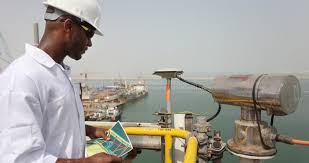Certified inspection plays a crucial role in ensuring the quality of products and services. It provides a level of assurance that products, ...
Certified inspection plays a crucial role in ensuring the quality of products and services. It provides a level of assurance that products, processes, and services meet the necessary standards and specifications. This is essential in a wide range of industries to guarantee customer satisfaction and safety. In this article, we will explore the importance of certified inspection in ensuring quality and how it impacts various industries and businesses.
Ensuring Quality: The Importance of Certified Inspection is crucial in various industries such as manufacturing, construction, and healthcare. Certified inspection guarantees that products and services meet a certain standard of quality and safety. This can help to prevent defects, ensure compliance with regulations, and build trust with customers. Certified inspectors are trained and qualified to identify potential issues and ensure that everything is up to standard. Ultimately, certified inspection plays a crucial role in maintaining quality and integrity within different fields.
Ensuring quality through certified inspection involves rigorous evaluation and verification processes to uphold product and service standards. For industries reliant on precision and safety, like aerospace and pharmaceuticals, certified inspection ensures that components and products meet exact specifications and are free from defects. These inspections are typically carried out by trained professionals with expertise in quality control and regulatory compliance, maintaining the integrity and reliability of goods and services. Overall, certified inspection is paramount in assuring high-quality outputs and customer satisfaction across various sectors.
The Importance of Certified Inspection in Ensuring Quality and Safety
third party inspection services

Certified inspection plays a crucial role in ensuring quality and safety in various industries. By conducting certified inspections, companies can verify that their products, processes, and facilities meet industry standards and regulations. This helps to prevent defects, malfunctions, or hazards that could potentially jeopardize the safety of workers, consumers, or the general public. Qualified inspectors are trained to thoroughly assess and test various aspects of a product or operation to ensure compliance with relevant standards. By obtaining certification, inspectors demonstrate their competence and adherence to a code of ethics, which further instills confidence in their ability to accurately assess the quality and safety of the subject being inspected. Certified inspections also provide assurance to stakeholders, such as customers, regulatory agencies, and insurance providers, that a company is committed to upholding high standards for its products and operations. This can enhance the organization's reputation and credibility, leading to increased trust and potentially gaining a competitive edge in the marketplace. In summary, certified inspections are essential for ensuring quality and safety in industries, as they help to identify and rectify potential issues before they pose a risk to people or the environment. By investing in certified inspections, companies can demonstrate their commitment to delivering safe and reliable products and services, ultimately contributing to a safer and more sustainable future.
Understanding the Process of Certified Inspection for Businesses and Consumers

Understanding the process of certified inspection for businesses and consumers involves recognizing the standards and regulations set by an accredited organization or governing body. This may include adhering to specific guidelines, conducting thorough examinations, and maintaining accurate records to ensure compliance with industry requirements. It is essential for businesses to understand and invest in certified inspection processes to guarantee the quality and safety of their products or services, as well as to build trust and confidence among consumers. By following these procedures, businesses can demonstrate their commitment to excellence and accountability. Additionally, consumers can benefit from this process by making informed decisions and having peace of mind knowing that the products or services they are purchasing have undergone proper inspection and meet the necessary standards.
The Role of Certified Inspection in Regulatory Compliance for Industries

Certified inspection plays a crucial role in regulatory compliance for industries. It ensures that products, processes, and systems meet the required standards and regulations set by governing bodies. Certified inspectors are trained and equipped to assess, verify, and validate that all components of a given industry comply with the necessary regulations, from safety standards to environmental regulations. By conducting thorough and reliable inspections, certified inspectors help industries avoid costly fines, legal issues, and reputational damage that can arise from non-compliance. Additionally, they contribute to the overall integrity and trustworthiness of the industry by ensuring that all operations are conducted in accordance with established regulations. Overall, the role of certified inspection in regulatory compliance is essential for maintaining industry standards and ensuring the safety and well-being of the public.
Benefits of Investing in Certified Inspection for Product Quality Assurance

Investing in certified inspection for product quality assurance can bring several benefits. It can help in ensuring that the products meet the required standards and specifications, which in turn helps in increasing customer satisfaction and loyalty. Certified inspection can also help in preventing product defects and recalls, which can save a company from costly damages to its reputation and finances. Additionally, it can help in identifying and addressing any potential issues in the production process, leading to improved efficiency and cost savings in the long run. Overall, investing in certified inspection for product quality assurance can contribute to a company's overall success and competitiveness in the market.
The Difference Between Certified Inspection and Regular Quality Control
Certified inspection involves a third-party inspection conducted by a certified inspector who has been trained and accredited to perform specific types of inspections. This helps ensure that the inspection is conducted according to specific standards and regulations. On the other hand, regular quality control is often done in-house by the company's own quality control team or employees to monitor and maintain the quality of the products or services. Certified inspection is often more comprehensive and can provide a higher level of assurance regarding the quality of the product or service, while regular quality control is typically more focused on day-to-day monitoring and improvement.
Certified Inspection: A Vital Component in the Manufacturing Process
Certified inspection is a crucial aspect of the manufacturing process that ensures the quality and safety of products. It involves a comprehensive examination of products to verify that they meet industry standards and specifications. Certified inspectors are trained and qualified to assess various aspects of the manufacturing process, including materials, components, and finished products. They use specialized tools and equipment to perform thorough inspections and identify any defects or deviations from standards. This helps companies maintain high-quality production and avoid costly recalls or customer dissatisfaction. The certification of inspection also provides assurance to consumers and regulatory agencies that products are safe and reliable. Overall, certified inspection plays a vital role in the manufacturing process by upholding standards and ensuring the integrity of products.
Ensuring Consumer Confidence Through Certified Inspection Standards
Ensuring consumer confidence through certified inspection standards involves implementing rigorous processes and criteria to ensure that products and services meet specific quality and safety standards. This can include third-party certification, regular audits, and adherence to industry-specific regulations and guidelines. By implementing these standards, businesses can demonstrate their commitment to delivering high-quality, reliable products and services to consumers, ultimately building trust and confidence in their brand. Additionally, certified inspection standards can help minimize the risk of product recalls, liability issues, and negative reputational impact, ultimately benefiting both businesses and consumers.
The Future of Certified Inspection: Trends and Innovations in the Industry
The future of certified inspection is moving towards more automated and data-driven processes. This includes the use of artificial intelligence and machine learning to analyze inspection data more efficiently and accurately. There is also a trend towards the use of drones and robotics for inspections in hard to reach or dangerous areas. Additionally, the industry is focusing on implementing more sustainable and environmentally friendly inspection techniques. Overall, the future of certified inspection is embracing technology and innovation to improve safety, accuracy, and efficiency.

